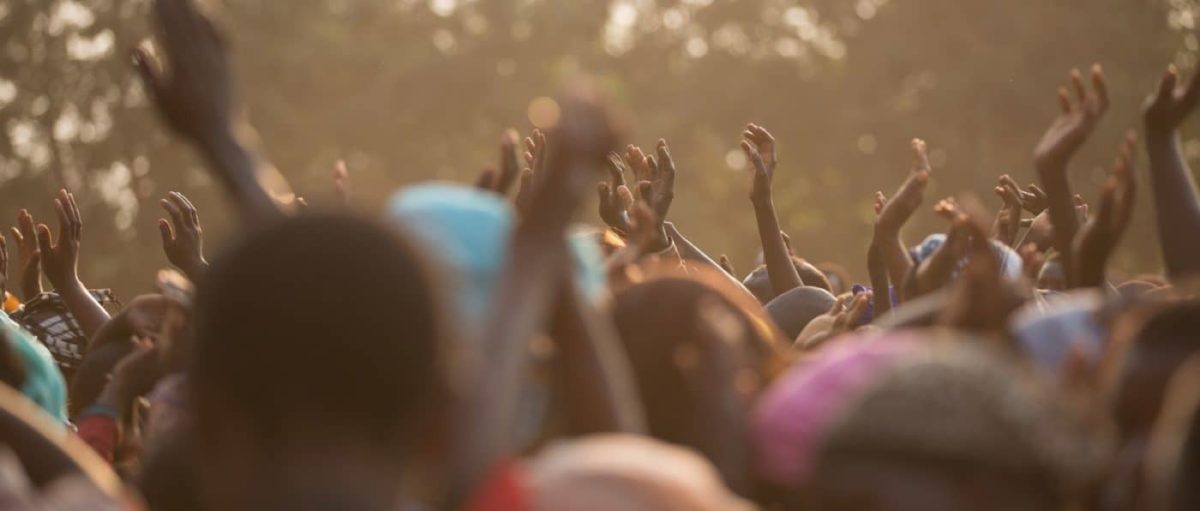Midway through my first year of college, a bunch of friends and I drove south from Berkeley to Palo Alto for the “Big Game” – biggest rivalry football game of the year. There was a certain thrill to leaving campus to represent our school. All of a sudden, I felt like I belonged to something. Everyone, from both sides, seemed to be basking in these new labels we could put on -“Cal” or “Stanford”, blue or red.
But while I expected drunken banter, I always assumed everyone was doing this with a healthy sense of irony. There was a wink and a nod. Ultimately, no one really cared, right? It was just good fun, an excuse to drink a beer before 2pm and make some friends.
To my horror, I quickly found this was not the case.
Only a half hour into the game, my fellow classmates were screaming “Take off that red shirt!” to a man from the “other side” in our school’s section. Soon enough, my fellow classmates were physically assaulting him, yanking his shirt off his body, tearing it, and pushing him over from his seat in the stands below. The tone shifted from friendly banter, to vicious and bloodthirsty, even hateful, in a moment’s notice.
Tribalism: The worst idea ever?
Its events like this that lead a lot of folks to say that tribalism to be a relic of humanity’s past, something we’ve grown out of and must move past. It’s what compelled Barry Brownstein of the Foundation for Economic Education to ask “Is Tribalism The Worst Idea Ever?”
Brownstein claims: “Tribalism is a failed system that has brought poverty, misery, and destruction to the world.” Such in-group identity only pushes us farther away from one another. It discourages connection and shared understanding. It feeds on our basest instincts to exclude and hate one another, they say.
But nothing could be further from the truth. In fact, I’d go as far to say that tribalism is one of the most helpful and necessary ideas in the history of humanity – yesterday, today, and tomorrow.
In fact, I’d go as far to say that tribalism is one of the most helpful and necessary ideas in the history of humanity – yesterday, today, and tomorrow.
Tribalism: The best idea ever?
Imagine 25,000 years ago. Bands of humans were roaming the forests, deserts, and plains in search of food, constantly suspicious of other bands, fighting over scarce resources. It would have been hell.
Tribalism, which evolved around this time, offered a clearly superior alternative. Through tribalism, we bonded together in larger groups around a shared identity. We fostered connection, togetherness, and belonging with people who were not our immediate kin. This togetherness has been a backbone of humanity for millennia. Even to this day, we can feel the positive energy and connection it brings, whether it be high fiving the stranger next to you when your team scores a touchdown or the sense of pride and belonging you feel when traveling back to your home town.
Tribalism is not actually so far off from what we think of simply as community. A relatively small group of people bond together in shared identity, whether through place, interests, values, or whatever. This is an incredible thing.
Where would any of us be without our tribes?
Tribalism is not a failed system. It’s just a limited system, one that is healthy and helpful to an extent and dangerous when taken to the extreme. But this could be said of practically any system or idea that we humans have created. Like anything else it’s something that needs to be balanced, so we can cultivate its many benefits while avoiding its many pitfalls.
Gratitude for what works
There are many aspects of our society that do not work and need to change. This change will rely on local action, small bands of people coming together around shared purpose and identity. This is tribalism. It’s one of the most connecting and transformative tools for change we’ve got. And we should embrace it and use it to our benefit.


